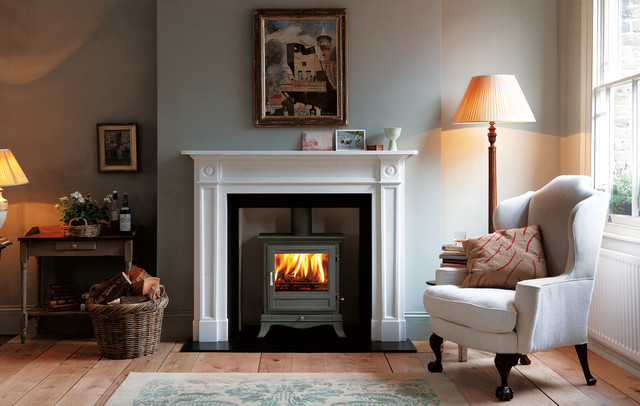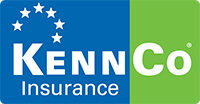Keeping your home and your family safe is most people’s #1 priority. That’s why being able to understand the dangers and take precautions against fires in your home is crucial. In this article, we will look at the most common fire hazards at home, and offer practical tips on how to prevent them.
Fire Hazards in Irish Homes

In Ireland, residential fires account for a significant number of emergency calls annually; on average 25 people die in fires each year in Ireland; while Ireland’s fire brigades were called to 4,496 domestic incidents in 2022 (the most recently available data).
These incidents often stem from overlooked hazards around the house. Every home faces the risk of fire hazards. Recognising these risks and taking proactive steps to mitigate them is essential for ensuring the safety and well-being of your home and family.
The Four Golden Rules of Fire Safety
In the event of a fire or other emergency at home, Fire Ireland advise putting the four golden rules of fire safety into action immediately. These are:
Prevention: The best way to prevent a fire is to make sure fires never start. Look for hazards and eliminate them around the home. And take precautions such as don’t leave children unattended around open fires or matches; don’t leave burning candles unattended; and don’t overload electrical sockets.
Detection: Install smoke detectors around your home to detect fires early. 82% of fires that kill people are in homes with no working smoke alarm. Smoke alarms should be tested regularly, and batteries should be changed annually, or when necessary.
Evacuation: Prepare a fire escape plan for your family and then practice it regularly. This way, if the unfortunate does happen, you will be prepared and know what to do.
Have a ‘Last Thing at Night’ Routine: Before you go bed at night, perform some basic checks to reduce the risk of fire such as making sure appliances are switched off, fires are extinguished, and exits are clear.
Common Causes of Fires at Home
Kitchen-Related Fires
Kitchens are potentially the most hazardous room in the home when it comes to fires. Unattended cooking, flammable objects near the stove, electrical appliances, and overheating oil are common culprits. And, even when taking precautions, accidents can happen. So it’s always best to be prepared and have a fire extinguisher or fire blanket close to hand.
Prevention Tips:
- Never leave cooking unattended.
- Keep flammable materials like tea towels and paper away from the cooker.
- Use a thermostat-controlled deep-fat fryer to prevent oil from overheating.
- Keep pot handles turned inwards and do not point over the flames or rings.
- Do not allow young children in the kitchen unsupervised.
Electrical Hazards
Electrical appliances, while indispensable, can pose significant fire risks if not properly maintained. With things like faulty wiring, overloaded sockets, and malfunctioning appliances can pose significant electrical fire risks, and are responsible for several domestic fires each year.
Prevention Tips:
- Regularly check and maintain electrical wiring. This should only be done by a qualified electrician.
- Make sure all electrical appliances are properly maintained and installed by a qualified person.
- Avoid overloading sockets and use surge protectors.
- Unplug appliances when not in use and avoid leaving them in use overnight. Only appliances designed for 24-hour use, such as fridges, should be plugged in overnight.
Stoves, Fires and Portable Heaters
Heating your home, particularly in the colder months, is essential but can be dangerous. Portable heaters, open fires, stoves, and other improperly maintained heating systems can lead to fires.
Prevention Tips:
- Keep heaters at a safe distance from flammable materials such as curtains.
- Install a sturdy fireplace screen or fire guard.
- Ensure chimneys are cleaned and heating systems are serviced annually.
- Do not use portable heaters to dry clothes.
- Do not leave heaters on when you go to bed.
- Do not leave children unattended around open fires, stoves or heaters.
Other Common Causes
Smoking
Another common cause of fires in the home is as a result of smoking. According to the National Directorate for Fire and Emergency Management (NDFEM),1 in 5 fire fatalities in Ireland in 2022 were caused by leaving lit cigarettes unattended.
The Dublin Fire Brigade advise that a lit or burning cigarette end can smoulder for hours before igniting and spreading. So, should be properly extinguished and never left near flammable materials.
Prevention Tips:
- Never leave a lit cigarette unattended.
- Smoke outside whenever possible.
- Use deep, sturdy ashtrays.
- Never smoke in bed or when feeling drowsy.
Candles and Open Flames
Candles, although creating a cozy atmosphere, can lead to fires if left unattended or placed near flammable materials.
Prevention Tips:
- Never leave candles burning unattended.
- Keep candles away from curtains and other flammable items.
- Consider using flameless LED candles for ambiance.
Phone & Laptop Chargers
Chargers for phones, laptops and tablets, though commonly used, can become significant fire risks due to overheating, use of low-quality chargers, and damaged cables. Ensuring that these devices are charged safely and correctly can help to prevent fires in the home.
Prevention Tips:
- Opt for chargers provided by the device manufacturer or certified alternatives. Low-quality chargers may not adhere to safety standards, increasing the risk of overheating and fires.
- Avoid leaving phones charging overnight or for long periods.
- Charge devices in well-ventilated areas and keep chargers uncovered.
- Check charging cables regularly for any signs of wear or damage. Frayed or exposed wires can cause short circuits, leading to potential fire hazards.
- Disconnect chargers from the power source when not actively charging – this not only reduces fire risk but also conserves energy.
- Avoid Charging on flammable surfaces such as beds, couches, or other surfaces that can easily catch fire.
Taking Fire Precautions at Home
Preventing fires is not just about avoiding risks; it’s about creating a culture of safety in the home. This involves regular maintenance, adherence to safety guidelines, and the use of fire prevention tools.
Smoke Alarms
The Health Service Executive (HSE) suggest installing smoke alarms on every level of your home and testing them monthly. You should change batteries annually or as needed.
Fire Extinguishers
Keep a fire extinguisher in the kitchen and other high-risk areas. Ensure all family members know how to use it. There are five types of extinguishers commonly used in Ireland. These are:
- Water
- AFFF Foam
- CO2
- ABC Powder
- Wet Chemical
Fire Escape Plan
Develop and practice a fire escape plan with your family. Identify two exits from each room and a meeting point outside. The HSA provide a great resource page on how to make an evacuation plan.
Regular Safety Checks
Conduct regular safety checks in your home. Look for frayed wires, malfunctioning appliances, and blocked escape routes.
Safe Practices
Adopting safe practices, such as never leaving cooking unattended, smoking outdoors, using candles responsibly, and having a nighttime routine or checklist can significantly reduce fire risks.
Summing Up
Fire safety in the home is a continuous process. By understanding common fire hazards and implementing prevention tips, families in Ireland can significantly reduce the risk of fire in their homes. Remember, a little caution and regular maintenance can go a long way in keeping your home safe and sound.
For a fast, reliable home insurance quote, reach out to one of our trusted KennCo Insurance advisors on 01 409 2600, or click here for a quick online quote.
Home Contents Value Calculator
Use our convenient tool to calculate the total value of your home contents. Simply enter your estimated values in the fields below, and our calculator will add them up to give you an indication of the amount you should insure your contents for.
Please note that you do not need to include the value of built-in kitchen units, wardrobes, or bathroom suites, as these are typically considered part of the building structure. If you need assistance with valuations, we recommend checking receipts, current prices online, or consulting with a professional valuer.
FAQs for Fire Precautions at Home
Sources:
Fire Ireland
Gov.ie
- Locations of Fire Statistics – 2022
- Fire Safety in the Kitchen
- Fire Safety at Home
- Five Ways to Stay Fire Safe this Festive Season from the National Directorate for Fire and Emergency Management (NDFEM)
Health Service Executive (HSE)
Dublin City Council/Dublin Fire Brigade/Monaghan CoCo
